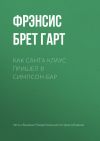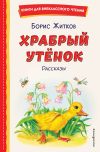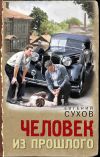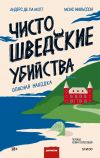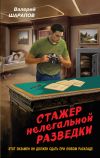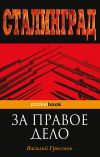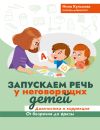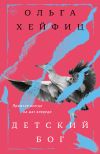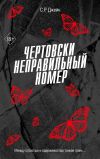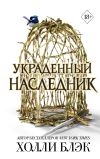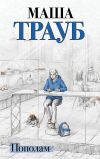Текст книги "Английский с Бретом Гартом. Калифорнийские рассказы / Bret Harte. The Luck of Roaring Camp, and Other Sketches"

Автор книги: Брет Гарт
Жанр: Иностранные языки, Наука и Образование
Возрастные ограничения: +12
сообщить о неприемлемом содержимом
Текущая страница: 4 (всего у книги 12 страниц)
enormously [ɪ'nɔ:mǝslɪ], jealous ['ʤelǝs], suspiciously [sǝ'spɪʃǝslɪ], encouragement [ɪn'kʌrɪʤmǝnt], seclusion [sɪ'klu:ʒn], duly ['dju:lɪ], preempt [,pri:'empt]
Such was the golden summer of Roaring Camp. They were “flush times,” and the luck was with them. The claims had yielded enormously. The camp was jealous of its privileges and looked suspiciously on strangers. No encouragement was given to immigration, and, to make their seclusion more perfect, the land on either side of the mountain wall that surrounded the camp they duly preempted.
This, and a reputation for singular proficiency with the revolver, kept the reserve of Roaring Camp inviolate (это, и репутация исключительного умения = исключительно умелого обращения с револьвером, сохраняло закрытую территорию Ревущего стана ненарушаемой; to keep; reserve – резерв; запасной игрок; резервация; заповедник; сдержанность). The expressman – their only connecting link with the surrounding world – sometimes told wonderful stories of the camp (посыльный – их единственное связующее звено с окружающим миром – иногда рассказывал чудесные истории о поселке). He would say, “They've a street up there in 'Roaring' that would lay over any street in Red Dog (он, бывало, говорил: У них там: «наверху» в Ревущем такая улица, которая бы затмила любую улицу в Рыжем псе; to lay over – покрывать /слоем чего-либо/; затмевать от to lay – класть; стелить, покрывать и over – над, поверх, по поверхности). They've got vines and flowers round their houses, and they wash themselves twice a day (у них виноградные лозы и цветы вокруг домов, и они моются дважды в день: «моют себя»). But they're mighty rough on strangers (но они очень суровы с чужими; mighty – могущественный; разг. очень; rough – грубый; неровный; жесткий; резкий, суровый; приблизительный), and they worship an Ingin baby (и они чтут индейского ребенка; Ingin – звукоподр. разг. = Indian – индейский, индеец; а также индийский, индиец).”
proficiency [prǝ'fɪʃǝnsɪ], reserve [rɪ'zɜ:v], inviolate [ɪn'vaɪǝlǝt], worship ['wɜ:ʃɪp]
This, and a reputation for singular proficiency with the revolver, kept the reserve of Roaring Camp inviolate. The expressman – their only connecting link with the surrounding world – sometimes told wonderful stories of the camp. He would say, “They've a street up there in 'Roaring' that would lay over any street in Red Dog. They've got vines and flowers round their houses, and they wash themselves twice a day. But they're mighty rough on strangers, and they worship an Ingin baby.”
With the prosperity of the camp came a desire for further improvement (с благоденствием поселка пришло желание дальнейшего улучшения = улучшений). It was proposed to build a hotel in the following spring, and to invite one or two decent families to reside there for the sake of The Luck, who might perhaps profit by female companionship (было предложено построить гостиницу следующей весной и пригласить одну-две приличные семьи проживать там ради Счастья, который мог бы, возможно, извлечь выгоду = пользу из женского общества: «товарищества»; for the sake of или for someone's/something's sake – ради кого-либо/чего-либо; or – или).
desire [dɪ'zaɪǝ], further ['fɜ:ðǝ], reside [rɪ'zaɪd], profit ['prɒfɪt], companionship [kǝm'pænjǝnʃɪp]
With the prosperity of the camp came a desire for further improvement. It was proposed to build a hotel in the following spring, and to invite one or two decent families to reside there for the sake of The Luck, who might perhaps profit by female companionship.
The sacrifice that this concession to the sex cost these men (жертва, которой уступка этому = женскому полу стоила этим мужчинам; to cost), who were fiercely skeptical in regard to its general virtue and usefulness (которые были яро скептическими по отношению к его добродетели и полезности вообще: «общей добродетели и полезности»), can only be accounted for by their affection for Tommy (может быть объяснена лишь их любовью к Томми; to accout for – объяснять что-либо; отчитываться за). A few still held out (немногие все еще упирались; to hold out – держаться до конца от to hold – держать и out – наружу). But the resolve could not be carried into effect for three months (но это решение не могло быть претворено в жизнь /еще/ три месяца; to carry into effect – претворять в жизнь, приводить в исполнение, осуществлять от to carry – нести, into – в и effect – эффект, результат; in effect – в действительности), and the minority meekly yielded in the hope that something might turn up to prevent it (и меньшинство покорно сдалось в надежде, что что-нибудь может появиться, чтобы предотвратить это = что случится что-нибудь, что предотвратит это; to turn up – появляться, внезапно подворачиваться от to turn – поворачивать/ся/ и up – вверх; по направлению к; также указывает на достижение результата). And it did (и оно сделало = появилось; to do – делать; зд.: вспомогательный глагол прошедшего времени, использованный вместо смыслового глагола, чтобы избежать повторения).
sacrifice ['sækrɪfaɪs], virtue ['vɜ:tju:], usefulness ['ju:sfǝlnǝs], resolve [rɪ'zɒlv], prevent [prɪ'vent]
The sacrifice that this concession to the sex cost these men, who were fiercely skeptical in regard to its general virtue and usefulness, can only be accounted for by their affection for Tommy. A few still held out. But the resolve could not be carried into effect for three months, and the minority meekly yielded in the hope that something might turn up to prevent it. And it did.
The winter of 1851 will long be remembered in the foothills (зиму 1851 года будут долго вспоминать у подножий /этих гор/: «зима будет долго вспоминаема»). The snow lay deep on the Sierras, and every mountain creek became a river, and every river a lake (снег лежал глубокий на Сьеррах[1]1
Горы Сьерра-Невада, расположенные на территории штатов Калифорния и Невада, их название по-испански означает «Заснеженный горный хребет».
[Закрыть], и каждый горный ручеек стал рекой, а каждая река – озером). Each gorge and gulch was transformed into a tumultuous watercourse that descended the hillsides (каждая теснина и ущелье было преображено = превратилось в бурный водный поток, который спадал со склонов холмов; to descend – спускаться), tearing down giant trees and scattering its drift and debris along the plain (вырывая с корнем гигантские деревья и разбрасывая плавник и обломки по равнине; to tear down – сносить, разрушать; мчаться от to tear – рвать, ломать, бушевать и down – вниз; debris – обломки; мусор, грязь).
tumultuous [tju:'mʌltjʋǝs], tear (глагол) [teǝ], debris ['deɪbri:]
The winter of 1851 will long be remembered in the foothills. The snow lay deep on the Sierras, and every mountain creek became a river, and every river a lake. Each gorge and gulch was transformed into a tumultuous watercourse that descended the hillsides, tearing down giant trees and scattering its drift and debris along the plain.
Red Dog had been twice under water, and Roaring Camp had been forewarned (Рыжий пес /уже/ дважды побывал под водой, и Ревущий стан был предупрежден). “Water put the gold into them gulches,” said Stumpy (вода положила = принесла золото в эти ущелья, – сказал Коротышка; to put; them – их; зд.: простореч. = the). “It's been here once and will be here again (она была здесь когда-то и будет здесь снова)!” And that night the North Fork suddenly leaped over its banks and swept up the triangular valley of Roaring Camp (и той ночью Северный Рукав вдруг вышел из своих берегов: «перепрыгнул через берега» и помчался вверх по треугольной долине Ревущего стана; fork – вилка; развилка, ответвление; рукав реки; to leap – прыгать; to sweep – мести; мчаться, нестись).
forewarn [fɔ:'wɔ:n]
Red Dog had been twice under water, and Roaring Camp had been forewarned. “Water put the gold into them gulches,” said Stumpy. “It's been here once and will be here again!” And that night the North Fork suddenly leaped over its banks and swept up the triangular valley of Roaring Camp.
In the confusion of rushing water, crashing trees, and crackling timber, and the darkness which seemed to flow with the water and blot out the fair valley (в неразберихе несущейся воды, разбивающихся = ломающихся деревьев и трещащей древесины и /в/ темноте, которая, казалось, текла вместе с водой и заволокла прекрасную долину: «казалась течь и заволочь»; to blot out – затемнять, заслонять, стирать от to blot – пачкать, пятнать, делать кляксы; промокать /кляксу бумагой/ и out – наружу, вне), but little could be done to collect the scattered camp (лишь немногое могло быть сделано, чтобы собрать /воедино/ раскиданный = разоренный поселок). When the morning broke, the cabin of Stumpy, nearest the riverbank, was gone (когда настало утро, хижина Коротышки, ближайшая к речному берегу, исчезла; to break – ломать, разрушать, нарушать; начинаться /о дне/; резко меняться /о погоде/; бурно начаться /о буре/; gone – исчезнувший, ушедший от to go – идти, уходить).
In the confusion of rushing water, crashing trees, and crackling timber, and the darkness which seemed to flow with the water and blot out the fair valley, but little could be done to collect the scattered camp. When the morning broke, the cabin of Stumpy, nearest the riverbank, was gone.
Higher up the gulch they found the body of its unlucky owner (выше по ущелью они нашли тело ее злосчастного хозяина; up – вверх, наверху; to find; unlucky – невезучий, неудачливый, кому не повезло или не везет от un– отрицательная приставка и lucky – везучий, удачливый); but the pride, the hope, the joy, The Luck, of Roaring Camp had disappeared (но гордость, надежда, радость, Счастье Ревущего стана исчезло). They were returning with sad hearts when a shout from the bank recalled them (они возвращались с печальными сердцами, когда крик с берега позвал их назад; to recall – припоминать; звать обратно от re– приставка со значением повторного или обратного действия и to call – звать). It was a relief-boat from down the river (это была спасательная лодка, /приплывшая/ снизу: «из внизу по реке»; relief – облегчение; подмога). They had picked up, they said, a man and an infant, nearly exhausted, about two miles below (они подобрали, сказали они, мужчину и младенца, почти истощенных = при смерти, около двух миль внизу /по течению/). Did anybody know them, and did they belong here (знает ли их кто-нибудь и здешние ли они: «относятся ли они сюда»; to belong – принадлежать /to/; быть частью чего-либо, быть своим где-либо)?
relief [rɪ'li:f]
Higher up the gulch they found the body of its unlucky owner; but the pride, the hope, the joy, The Luck, of Roaring Camp had disappeared. They were returning with sad hearts when a shout from the bank recalled them. It was a relief-boat from down the river. They had picked up, they said, a man and an infant, nearly exhausted, about two miles below. Did anybody know them, and did they belong here?
It needed but a glance to show them Kentuck lying there (потребовалось лишь одного взгляда, чтобы показать им = чтобы они увидели Кентукка, лежавшего там; to need – нуждаться; glance – быстрый, короткий взгляд), cruelly crushed and bruised, but still holding The Luck of Roaring Camp in his arms (жестоко раздавленного = искалеченного и в кровоподтеках, но все еще державшего Счастье Ревущего стана в своих руках; bruised от to bruise – ставить синяки, ушибать; ср.: bruise – синяк). As they bent over the strangely assorted pair, they saw that the child was cold and pulseless (когда они склонились над этой странно подобранной парой, они увидели, что ребенок был холодный и без пульса; to bend; to see; pulseless от pulse – пульс и – less – окончание прилагательных, означающее «не имеющий чего-либо»). “He is dead,” said one (он мертв, – сказал один). Kentuck opened his eyes (Кентукк открыл глаза). “Dead?” he repeated feebly (мертв? – повторил он слабо = слабым голосом). “Yes, my man, and you are dying too (да, приятель: «мой человек», и ты умираешь тоже).”
glance [ɡlɑ:ns], bruise [bru:z], assorted [ǝ'sɔ:tɪd], pair [peǝ], pulseless ['pʌlslǝs]
It needed but a glance to show them Kentuck lying there, cruelly crushed and bruised, but still holding The Luck of Roaring Camp in his arms. As they bent over the strangely assorted pair, they saw that the child was cold and pulseless. “He is dead,” said one. Kentuck opened his eyes. “Dead?” he repeated feebly. “Yes, my man, and you are dying too.”
A smile lit the eyes of the expiring Kentuck (улыбка осветила глаза угасающего Кентукка; to light – освещать, зажигать; to expire – угасать; истекать /о сроке действия/). “Dying!” he repeated (умираю! – повторил он; зд. эллипсис от I am dying); “he's a-taking me with him (он забирает меня с собой; a-taking простореч. вместо taking). Tell the boys I've got The Luck with me now (скажите ребятам, /что/ Счастье теперь у меня с собой);” and the strong man, clinging to the frail babe as a drowning man is said to cling to a straw (и этот сильный мужчина, цепляясь за хрупкого младенца, как тонущий человек, говорят, цепляется за соломинку: «тонущий человек говорится цепляться»), drifted away into the shadowy river that flows forever to the unknown sea (уплыл прочь в тенистую реку, которая вечно течет в неизведанное море; to drift – плыть по течению, дрейфовать; shadowy – тенистый, мрачный, смутный от shadow – тень; возможно, также намек на тени умерших; forever – навсегда; вечно; unknown – неизвестный от to know – знать).
expire [ɪk'spaɪǝ], cling [klɪŋ], drown [draʋn]
A smile lit the eyes of the expiring Kentuck. “Dying!” he repeated; “he's a-taking me with him. Tell the boys I've got The Luck with me now;” and the strong man, clinging to the frail babe as a drowning man is said to cling to a straw, drifted away into the shadowy river that flows forever to the unknown sea.
Miss Peggy's proteges
(Подопечные мисс Пегги)
The string of Peggy's sunbonnet had become untied (тесемка широкополой шляпы Пегги развязалась: «стала развязанной»; sunbonnet – широкополая шляпа для защиты от солнца от sun – солнце и bonnet – чепец, женская шляпа, часто – завязываемая под подбородком; to become) – so had her right shoe (так же сделал = также расшнуровался и ее правый башмак). These were not unusual accidents to a country girl of ten (эти /происшествия/ не были необычными происшествиями для деревенской девочки десяти /лет/), but as both of her hands were full she felt obliged to put down what she was carrying (но так как обе ее руки были полны = заняты, она почувствовала себя обязанной положить вниз = на землю /то,/ что она несла; to feel). This was further complicated by the nature of her burden (это было дальше = еще более затруднено характером ее ноши; nature – природа; род, характер, сущность) – a half-fledged shrike and a baby gopher – picked up in her walk (наполовину оперившийся сорокопут и детеныш гофера: «младенческий гофер», подобранные на ее прогулке; half – половина; to fledge – оперяться). It was impossible to wrap them both in her apron without serious peril to one or the other (было невозможно завернуть их обоих в ее передник без серьезной опасности для одного или другого /из них/); she could not put either down without the chance of its escaping (она не могла положить ни одного из них вниз = на землю без вероятности, что он сбежит; either – зд.: любой один из двух; to escape – сбегать, спасаться бегством).
protege ['prɒtɪʒeɪ], obliged [ǝ'blaɪʤd], burden ['bɜ:dǝn], gopher ['ɡǝʋfǝ], wrap [ræp], both [bǝʋθ], apron ['eɪprǝn], either ['aɪðǝ] или ['i:ðǝ]
The string of Peggy's sunbonnet had become untied – so had her right shoe. These were not unusual accidents to a country girl of ten, but as both of her hands were full she felt obliged to put down what she was carrying. This was further complicated by the nature of her burden – a half-fledged shrike and a baby gopher – picked up in her walk. It was impossible to wrap them both in her apron without serious peril to one or the other; she could not put either down without the chance of its escaping.
“It's like that dreadful riddle of the ferryman who had to take the wolf and the sheep in his boat,” said Peggy to herself (это как та ужасная загадка про перевозчика, которому нужно было перевозить: «брать» волка и овцу в своей лодке, – сказала Пегги себе = про себя; ferryman от ferry – паром; to have to – быть вынужденным, обязанным), “though I don't believe anybody was ever so silly as to want to take a wolf across the river (хотя я не верю, что кто-нибудь был когда-нибудь так глуп, чтобы захотеть перевезти волка через реку).”
dreadful ['dredfǝl], though [ðǝʋ], believe [bɪ'li:v]
“It's like that dreadful riddle of the ferryman who had to take the wolf and the sheep in his boat,” said Peggy to herself, “though I don't believe anybody was ever so silly as to want to take a wolf across the river.”
But, looking up, she beheld the approach of Sam Bedell, a six-foot tunnelman of the “Blue Cement Lead” (но, взглянув вверх = подняв глаза, она узрела приближение Сэма Беделла, шестифутового горняка: «туннельного человека» из /компании/ «Синий Цемент – Свинец»; to behold; cement – цемент; цементирующее вещество; геол. цементирующая масса; зд.: составная часть названия поселка, см. ниже), and, hailing him, begged him to hold one of her captives (и, окликнув его, попросила его подержать одного из своих пленников). The giant, loathing the little mouse-like ball of fur, chose the shrike (великан, испытывая отвращение к маленькому, похожему на мышь комку меха, выбрал сорокопута; to loathe – испытывать отвращение, ненавидеть; mouse-like – похожий на мышь от mouse – мышь и like – подобный, похожий; ball – мяч, шар; to choose).
approach [ǝ'prǝʋʧ], Bedell [be'del], cement [sɪ'ment], lead (сущ.) [led], giant [ʤaɪǝnt], loathe [lǝʋð]
But, looking up, she beheld the approach of Sam Bedell, a six-foot tunnelman of the “Blue Cement Lead,” and, hailing him, begged him to hold one of her captives. The giant, loathing the little mouse-like ball of fur, chose the shrike.
“Hold him by the feet, for he bites awful,” said Peggy, (держи его за ноги, а то он кусается страшно, – сказала Пегги) as the bird regarded Sam with the diabolically intense frown of his species (в то время как птица разглядывала Сэма дьявольски напряженным взглядом своего вида; frown – нахмуренные брови; хмурый взгляд; species – биологический вид). Then, dropping the gopher unconcernedly in her pocket, she proceeded to rearrange her toilet (затем, опустив: «уронив» гофера беззаботно в карман, она принялась приводить в порядок свой туалет; to rearrange – переставлять; приводить в порядок, поправлять от re– снова, заново и to arrange – устраивать, организовывать).
regard [rɪ'ɡɑ:d], diabolically [,daɪǝ'bɒlɪkǝlɪ], species ['spi:ʃi:z]
“Hold him by the feet, for he bites awful,” said Peggy, as the bird regarded Sam with the diabolically intense frown of his species. Then, dropping the gopher unconcernedly in her pocket, she proceeded to rearrange her toilet.
The tunnelman waited patiently until Peggy had secured the nankeen sunbonnet around her fresh but freckled cheeks (горняк ждал терпеливо, пока Пегги не закрепила нанковую шляпу вокруг своих свежих, но веснушчатых щечек), and, with a reckless display of yellow flannel petticoat and stockings like peppermint sticks, had double-knotted her shoestrings viciously (и с беспечной демонстрацией желтой фланелевой нижней юбки и чулков, похожих /цветом/ на мятные леденцы: «палочки», /не/ завязала двойным узлом свои шнурки остервенело = накрепко; peppermint – перечная мята; to double-knot от double – двойной и knot – узел; to knot – завязывать узел, узлом) when he ventured to speak (когда он отважился заговорить).
patiently ['peɪʃǝntlɪ], secure [sɪ'kjʋǝ], knot [nɒt], viciously ['vɪʃǝslɪ], venture ['venʧǝ]
The tunnelman waited patiently until Peggy had secured the nankeen sunbonnet around her fresh but freckled cheeks, and, with a reckless display of yellow flannel petticoat and stockings like peppermint sticks, had double-knotted her shoestrings viciously when he ventured to speak.
“Same old game, Peggy (все та же старая игра, Пегги)? Thought you'd got rather discouraged with your 'happy family' (/я/ думал, ты охладела к своей «веселой семейке»; to think; to get – зд.: становиться; rather – до некоторой степени, несколько; discouraged – обескураженный, потерявший энтузиазм от to discourage – обескураживать, расхолаживать, отбивать желание), after that new owl o' yours had gathered 'em in (после того как эта твоя новая сова их прибрала; o' yours = of yours – твой; to gather in – собирать урожай: «собирать в, внутрь»).”
discouraged [dɪ'skʌrɪʤd], owl [aʋl]
“Same old game, Peggy? Thought you'd got rather discouraged with your 'happy family,' after that new owl o' yours had gathered 'em in.”
Peggy's cheek flushed slightly at this ungracious allusion to a former collection of hers (щека = щеки Пегги покраснели слегка при этом нелюбезном = бестактном упоминании о ее бывшей коллекции /животных/; of hers – ее), which had totally disappeared one evening after the introduction of a new member in the shape of a singularly venerable and peaceful-looking horned owl (которая полностью исчезла одним = однажды вечером после присоединения нового члена в лице исключительно достойного и мирно выглядевшего сыча; introduction – представление, знакомство; введение, нововведение; вступление, предисловие; shape – форма; horned owl – сыч: «рогатая сова»).
ungracious [ʌn'ɡreɪʃǝs], singularly ['sɪŋɡjʋlǝlɪ], venerable ['venǝrǝbl]
Peggy's cheek flushed slightly at this ungracious allusion to a former collection of hers, which had totally disappeared one evening after the introduction of a new member in the shape of a singularly venerable and peaceful-looking horned owl.
“I could have tamed him, too,” said Peggy indignantly (я могла бы приручить и его тоже, – сказала Пегги возмущенно; to tame – укрощать, приручать), “if Ned Myers, who gave him to me, hadn't been training him to catch things, and never let on anything about it to me (если бы Нед Майерс, который отдал его мне, не тренировал его охотиться: «ловить существа», и /к тому же/ не сказал мне об этом ни слова; to give; thing – вещь; существо; never – никогда; так и не; to let on – выдавать секрет, признаваться от to let – давать, пускать и on – на; дальше). He was a regular game owl (он был обычным охотничьим сычом; game – игра; дичь)!”
indignantly [ɪn'dɪɡnǝntlɪ], regular ['reɡjʋlǝ]
“I could have tamed him, too,” said Peggy indignantly, “if Ned Myers, who gave him to me, hadn't been training him to catch things, and never let on anything about it to me. He was a regular game owl!”
“And what are you goin' to do with the Colonel here?” said Sam, indicating under that gallant title the infant shrike (а что ты собираешься делать с этим полковником? – сказал Сэм, обозначая этим славным званием детеныша-сорокопута; here – здесь; вот; infant – дитя, младенец), who, with his claws deeply imbedded in Sam's finger, was squatting like a malignant hunchback, and resisting his transfer to Peggy (который, с коготками, глубоко погруженными в палец Сэма = запустив коготки в палец Сэма, съежился, словно злобный горбун, и сопротивлялся своей передаче /обратно/ Пегги). “Won't he make it rather lively for the others (не сделает ли и он жизнь: «это» довольно оживленной = нескучной, опасной для остальных)? He looks powerful discontented for one so young (он выглядит больно недовольным для существа столь юного; powerful – мощный; зд.: простореч. очень уж; one – один; человек, существо).”
colonel ['kɜ:nǝl], squat [skwɒt], malignant [mǝ'lɪɡnǝnt], resist [rɪ'zɪst]
“And what are you goin' to do with the Colonel here?” said Sam, indicating under that gallant title the infant shrike, who, with his claws deeply imbedded in Sam's finger, was squatting like a malignant hunchback, and resisting his transfer to Peggy. “Won't he make it rather lively for the others? He looks powerful discontented for one so young.”
“That's his nature,” said Peggy promptly (это его натура, – сказала Пегги с готовностью). “Just wait till I tame him (вот подожди, пока я приручу его). If he'd been left along o' his folks, he'd grow up like 'em (если бы он был оставлен вместе со своими родичами, он бы вырос /таким/, как они; to leave – оставлять; along o' = along of – редк. вместе с; 'em = them). He's a 'butcher bird' – what they call a 'nine-killer' – kills nine birds a day (он – «птица-мясник», то, что называют «убийца девяти» – убивает девять птиц в день; butcher – мясник)! Yes (да)! True as you live (правдиво = это так же верно, как то, что ты живешь)! Sticks 'em up on thorns outside his nest, just like a butcher's shop, till he gets hungry (нанизывает их на шипы перед своим гнездом, прямо как в лавке мясника, пока не проголодается: «сделается голодным»; to stick – втыкать; приклеивать, прилипать; up – вверх, наверху; outside – снаружи; перед /домом, входом и т. п./). I've seen 'em (я видала их = таких)!”
folk [fǝʋk], butcher ['bʋʧǝ]
“That's his nature,” said Peggy promptly. “Just wait till I tame him. If he'd been left along o' his folks, he'd grow up like 'em. He's a 'butcher bird' – what they call a 'nine-killer' – kills nine birds a day! Yes! True as you live! Sticks 'em up on thorns outside his nest, just like a butcher's shop, till he gets hungry. I've seen 'em!”
“And how do you calculate to tame him?” asked Sam (и как ты рассчитываешь приручить его? – спросил Сэм; to calculate – делать математические рассчеты, производить вычисления; рассчитывать, делать с рассчетом). “By being good to him and lovin' him,” said Peggy, stroking the head of the bird with infinite gentleness (/тем, чтобы/ быть доброй к нему и любить его, – сказала Пегги, гладя голову птицы с бесконечной ласковостью; lovin' = loving). “That means you've got to do all the butchering for him?” said the cynical Sam (это значит, что тебе придется делать все смертоубийство за него? – сказал циничный Сэм; to have got to = to have to – быть вынужденным, обязанным; butchering – забой скота от to butcher – забивать скот; переносн. жестоко убивать; ср. butcher – мясник).
infinite ['ɪnfɪnǝt]
“And how do you calculate to tame him?” asked Sam. “By being good to him and lovin' him,” said Peggy, stroking the head of the bird with infinite gentleness. “That means you've got to do all the butchering for him?” said the cynical Sam.
Peggy shook her head, disdaining a verbal reply (Пегги покачала головой, пренебрегая словесным ответом; to shake). “Ye can't bring him up on sugar and crackers, like a Polly,” persisted Sam (ты не можешь растить его на сахаре и печеньях, как попку = попугая, – упорствовал Сэм; ye – имитация просторечия = you; to bring up – растить, воспитывать от to bring – приносить и up – вверх; также указывает на достижение результата). “Ye can do anything with creatures, if you ain't afraid of 'em and love 'em,” said Peggy shyly (ты можешь = можно делать все что угодно с живыми существами, если ты не боишься их и любишь их, – сказала Пегги застенчиво; ain't – простореч. = are not, is not, am not; to be afraid – бояться: «быть боящимся»; 'em = them).
persist [pǝ'sɪst], creature ['kri:ʧǝ]
Peggy shook her head, disdaining a verbal reply. “Ye can't bring him up on sugar and crackers, like a Polly,” persisted Sam. “Ye can do anything with creatures, if you ain't afraid of 'em and love 'em,” said Peggy shyly.
The tall tunnelman, looking down into the depths of Peggy's sunbonnet, saw something in the round blue eyes and grave little mouth that made him think so too (высокий горняк, заглянув в глубины шляпки Пегги, увидел что-то в этих круглых голубых глазах и в серьезном ротике: «маленьком рте», что заставило его подумать так тоже; to see; to make – делать; заставлять). But here Peggy's serious little face took a shade of darker concern (но тут серьезное личико: «маленькое лицо» Пегги приняло оттенок более темной = хмурой озабоченности) as her arm went down deeper into her pocket, and her eyes got rounder (в то время как ее рука опустилась глубже в карман и ее глаза округлились: «сделались круглее»; to go down – идти вниз; опускаться; to get).
“It's – it's – burrowed out!” she said breathlessly (он – он – выкопался наружу = прогрыз дыру и сбежал! – сказала она бездыханно = ахнула; breathless – запыхавшийся; задыхающийся; затаивший дыхание; бездыханный).
concern [kǝn'sɜ:n], burrow ['bʌrǝʋ], breathlessly ['breθlǝslɪ]
The tall tunnelman, looking down into the depths of Peggy's sunbonnet, saw something in the round blue eyes and grave little mouth that made him think so too. But here Peggy's serious little face took a shade of darker concern as her arm went down deeper into her pocket, and her eyes got rounder.
“It's – it's – burrowed out!” she said breathlessly.
The giant leaped briskly to one side (великан живо отпрыгнул в сторону: «одну сторону»). “Hold on,” said Peggy abstractedly (подожди, – сказала Пегги рассеянно; to hold on – ждать, не спешить, держаться: «держать дальше»). With infinite gravity she followed, with her fingers, a seam of her skirt down to the hem (с бесконечной серьезностью она проследовала = провела пальцами по шву своей юбки вниз до /самой/ каймы), popped them quickly under it, and produced, with a sigh of relief, the missing gopher (сунула их быстро под нее и извлекла, со вздохом облегчения, пропавшего гофера).
abstractedly [æb'stræktɪdlɪ], sigh [saɪ], relief [rɪ'li:f]
The giant leaped briskly to one side. “Hold on,” said Peggy abstractedly. With infinite gravity she followed, with her fingers, a seam of her skirt down to the hem, popped them quickly under it, and produced, with a sigh of relief, the missing gopher.
“You'll do,” said Sam, in fearful admiration (ты сделаешь = справишься, – сказал Сэм в робком = благоговейном восхищении). “Maybe you'll make somethin' out o' the Colonel too (может быть, ты сделаешь что-нибудь из полковника тоже; somethin' = something; o' = of). But I never took stock in that there owl (но я никогда не доверял тому сычу; to take stock in – доверять: «брать пай в чем-либо»; there – там; вон там, вон тот). He was too durned self-righteous for a decent bird (он был слишком, черт побери, самодовольный для пристойной птицы; durned = damned – проклятый; зд.: междометие; self-righteous – самодовольный: «само-праведный, само-добродетельный»). Now, run along (ну, беги по своим делам; now – теперь; ну; to run along – уходить, бежать по своим делам от to run – бежать и along – вдоль, дальше) afore anythin' else fetches loose again (прежде чем что-нибудь = кто-нибудь еще вырвется на волю снова; afore – устар. = before – прежде, прежде чем; to fetch – принести, раздобыть; добиться чего-либо; loose – свободный; на воле, непривязанный). So long (пока; «так долго»)!”
Правообладателям!
Это произведение, предположительно, находится в статусе 'public domain'. Если это не так и размещение материала нарушает чьи-либо права, то сообщите нам об этом.







